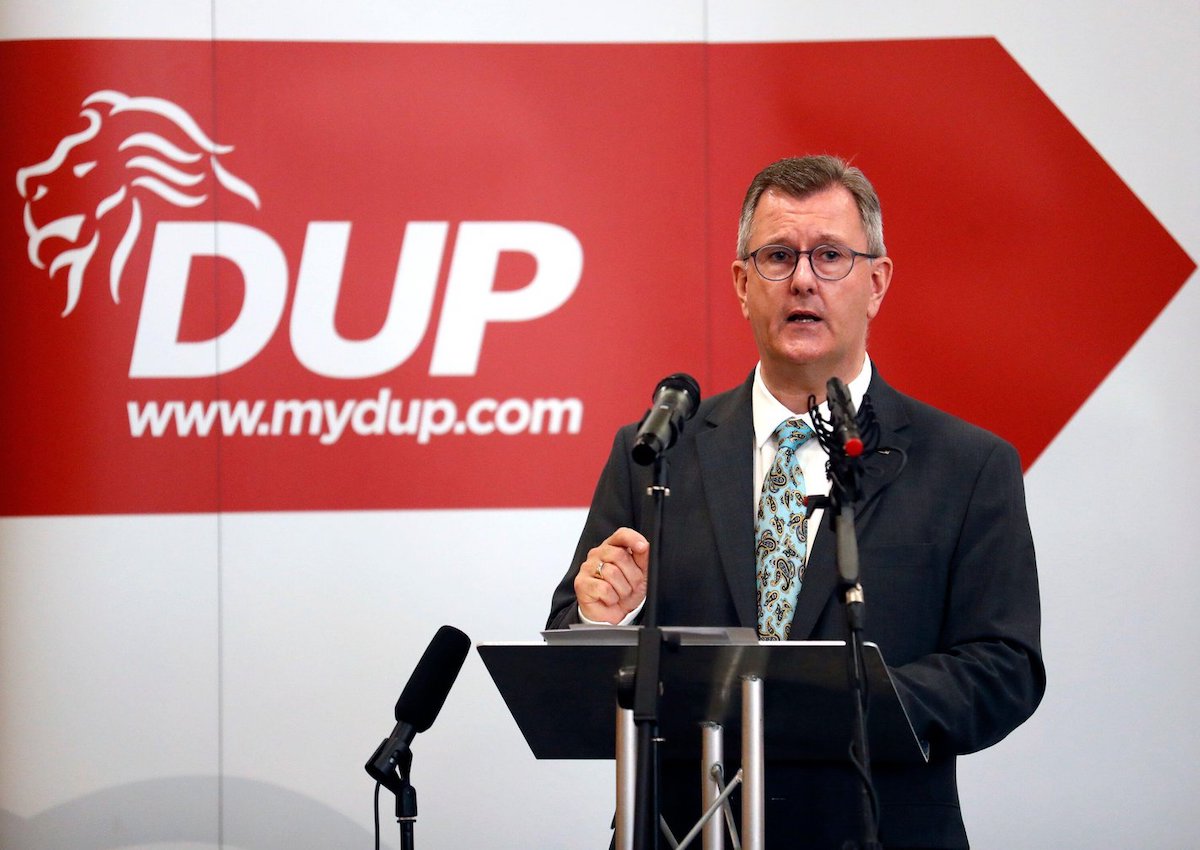
DUP leader Jeffrey Donaldson has accused some of his own party colleagues of damaging the party with “manufactured” attacks driven by a desire “to gain media coverage or advance their personal agenda”.
In a leaked email, he indicated that recent hardline rants by prominent figures had damaged the party’s prospects and unionism in general.
Donaldson stressed the need for unionist unity and appeared to hold out the prospect of a pact, or informal co-operation, for next year’s Westminster election when he said he hoped unionists would “not [be] working against each other, but working with each other”.
Long-standing turmoil in the DUP has resurfaced following the agreement of the Windsor Framework, the latest reworking of Brexit to satisfy insatiable and shifting unionist demands.
Calls for new concessions from hardline elements of the DUP have ratcheted up in line with the pressure on the party to end its 18-month boycott of the Stormont Assembly.
Last year, Sinn Féin became the largest party in the North, and in May, nationalists outpolled unionists for the first time, upending the historical gerrymander of partition.
That inspired diehard ‘solo runs’ by North Antrim MP Ian Paisley Jr and former party leaders Arlene Foster and Nigel Dodds, who Donaldson suggests have been briefing against his own team.
Paisley warned in June that an end to the DUP boycott of the North’s political institutions was “an ice age away,” while Dodds and Foster have ironically condemned a “democratic deficit” created by the North’s status within the EU Customs Union.
In the leaked email, Donaldson condemned those “within our own ranks who brief against their own party and damage our electoral prospects and the cause of the Union.”
He added: “It won’t deflect me or our party from the task in hand, which is to restore our place in the UK and prevent our opponents from winning the next election.
“In some cases, years of daily gutting each other on the airwaves have had an eroding effect on the pro-Union voter.
“Indeed, it drives many pro-Union voters to stand back from getting involved in elected politics or voting in elections. This has cost unionism dear and helped pave the way for the success of our opponents.”
Donaldson said unionist grassroots wanted their elected representatives to co-operate. He hinted at a tie-up with the Ulster Unionist Party.
“Since becoming DUP leader, I have made it my goal to reach out to other unionist parties and groupings to encourage them to work with me and my DUP colleagues to take Northern Ireland in the right direction,” he said.
“It is frustrating that unionism could have had more seats in the last Assembly election if the transfer rate between unionist parties had been better. Division costs unionism seats and influence.
“Whatever our differences, I would rather have three or four more pro-Union MLAs in Stormont than MLAs who either want to remove Northern Ireland from the UK or who don’t care about the Union.”
Political commentator Suzanne Breen said Donaldson’s admission of deep internal divisions was a sign of a leader “at the end of his tether”.
“Until now, his leadership has focused on papering over the cracks, not acknowledging they still exist. He took over a party at war two years ago. While there was a public ceasefire, peace was never declared. Private sniping continues apace.”
And following a round of party talks with British officials last week, Sinn Féin vice president Michelle O’Neill said a question remained over whether the DUP would share power with other parties in Belfast.
She said the DUP and the London government were engaging in a “game of chicken”.
“The real question is, are the DUP prepared to share power with the rest of us, deliver good public services, fight for workers and families right now who are dealing with the cost-of-living crisis.”
![[Irish Republican News]](https://republican-news.org/graphics/title_gifs/rn.gif)
![[Irish Republican News]](https://republican-news.org/graphics/title_gifs/harp.gif)

